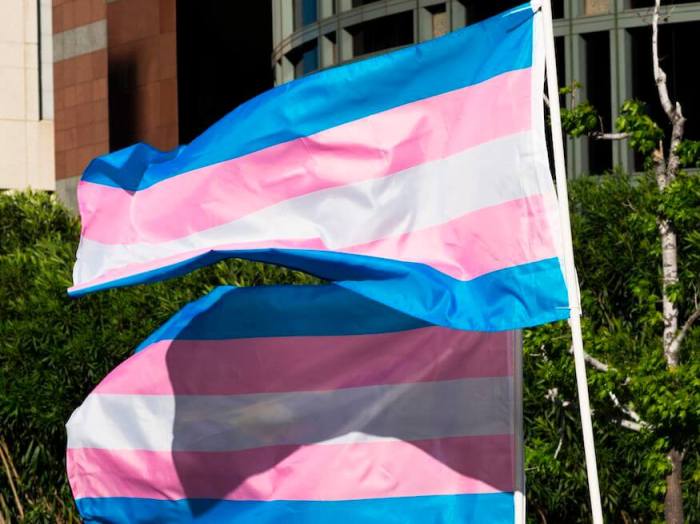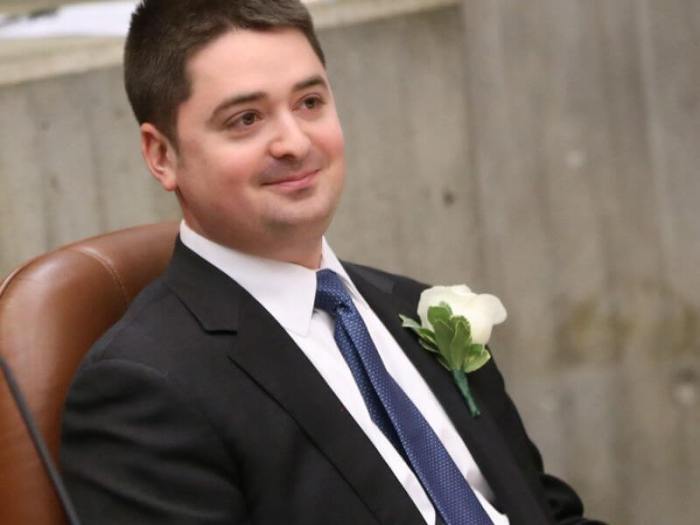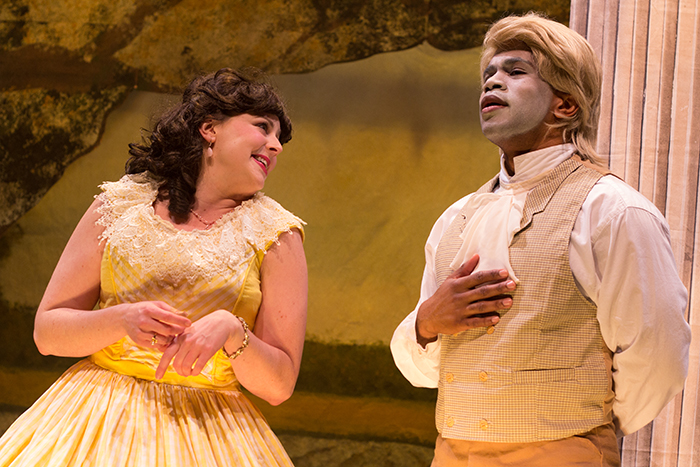Eddie Redmayne is very aware of how much has changed in the last couple years. Mainstream acceptance of the trans community has been on the rise, and there is now greater demand for trans roles to be played by trans actors, as with Laverne Cox on “Orange is the New Black” and the cast of “Tangerine.” Redmayne, to his credit, took the subject very seriously as soon as he was involved with “The Danish Girl,” about Lili Elbe, one of the first people to transition from male to female, a number of years ago. The Oscar-winner talks about how his education meant more to him than just doing a film. You actually won your Oscar for “The Theory of Everything” while you were shooting “The Danish Girl.” That must have been a gear-shift.
We were quite in the thick of shooting. I flew out to Los Angeles with my wife, and it was the most frenzied, adrenaline-fueled two days of euphoria and excitement. There was so much adrenaline pumping into my body I can barely remember any of it. The next thing I knew we were back on set, doing a scene where Lily was undergoing surgery. I was lying there on this bed and the whole thing felt like this weird dream. Very odd. RELATED: Review: “Carol” is Todd Haynes’ detached but passionate look at women in love You were involved with this for a few years before it was finally greenlit. That seems like it would give you extra time to research and get it right.
Exactly. Until it was greenlit, it was more about learning for my own sake. I’d been attached to it, then it didn’t look like it was happening. Then when I was working with Lana Wachowski [on “Jupiter Ascending”], I mentioned Lili and Gerda [her former wife, played by Alicia Vikander] to her, and she was incredibly passionate about her story and spoke so eloquently about Gerda’s paintings of Lili. She pointed me to where I should start educating myself. Then once it got greenlit, I started meeting members of the trans community from different generations. Everyone was so stunningly generous in sharing their experiences in order to educate me. Above and beyond the film, life-wise it was an amazing thing. What kinds of things in particular did you learn?
I’d always summed that being transgender involved some form of physical transformation, and I realized that’s absolutely not the case. It’s entirely to do with what’s in one’s mind. Whether one has undergone any physical changes is neither here nor there. All the women I talked to described how they had known from a very early age that they were a different gender than that which they’d been assigned at birth. What was important for me was that when Lili was living as Einar, she was uncomfortable in this guise. There was an amazing drawing of Lili when she was living as a man. She had these high starched collars and this tailored suit. It almost looked like a scaffolding that she had put on herself as a consequence of trying to keep up this masculinity. There’s a long transitional period. The Lili of later in the film is very different from when she was first transitioning.
I spoke to one trans woman in Los Angeles who described early in her transition, there was an experimentation of trying makeup. Perhaps she would put too much makeup on or wear clothes that were overly feminine. She made mistakes, almost. She called it “hyper-feminization.” She related it to a young girl’s puberty or adolescence — of trying things. Looking at Gerda’s paintings of Lili, the poses are quite feminine and almost heightened. That was an insight. As she’s unpeeling and finding herself, she’s almost copying. But gradually she begins to find who she is and all that disappears. She becomes much more comfortable in their own skin. How did you feel when you first put on Lili’s female attire?
The experience of trying clothes and makeup was a long process over several months of investigation. So there wasn’t one big makeover moment. It was very much a step-by-step process. But the first time I came on set as Lili, the feeling of nervousness and scrutiny — the gaze of people looking at you — was unnerving. It was interesting because it resonated with what some of the trans women I’d met who had described going out early in their transition — that nervousness of judgment. But with them it’s coupled with the absolute fear of violence, whereas I was doing it in a completely safe environment, surrounded by people I knew. There was nothing compared to what trans people have to deal with on a day-to-day basis — the real threat of discrimination and violence. RELATED: Eddie Redmayne talks “The Theory of Everything” and being a disaster at science The voice you adopt as Lili isn’t all that different from her voice when she was Einar. You don’t do an exaggerated “feminine” voice.
April Ashley, a wonderful woman, who’s an elder member of the trans community, she said, “Whatever you do, don’t raise the octaves of your voice. It’s your voice, but just find a subtle change.” There’s amazing resources on YouTube for trans women on how to adapt vocally. Then I realized, of course, Lili would have had none of that. So I tried to find it in me. Over the last year or two there has been an incredible tidal wave of awareness and support for the transgender community, where before they were either ignored or seen as figures of fun. In fact, this has happened in the midst of your involvement with this movie. It’s extraordinary. But what is dumfounding to me, when I was first reading about Lili and Gerda’s story, is they had to deal with violence and discrimination. This is almost 100 years ago. Nowadays you can be fired in 31 states in America for being trans. The violence against trans women, especially trans women of color, is overwhelming. There’s been great acceleration of acceptance and real conversations in mainstream media. But it’s taken such a long time and there’s so much more progress to go. I hope, in some ways, this film can just continue that dialogue. There’s also been criticism about you, a cisgender actor, playing a trans person, and not a trans actor.
It’s an incredibly important discussion. Many trans people were involved in the film. Rebecca Root is a great British trans actress, and she plays a cisgender nurse here. One hopes there will be more opportunity for trans actors, not only in trans roles but in cisgender roles as well. It’s an incredibly delicate conversation. Follow Matt Prigge on Twitter @mattprigge
Eddie Redmayne on what he learned from the transgender community

Getty Images























